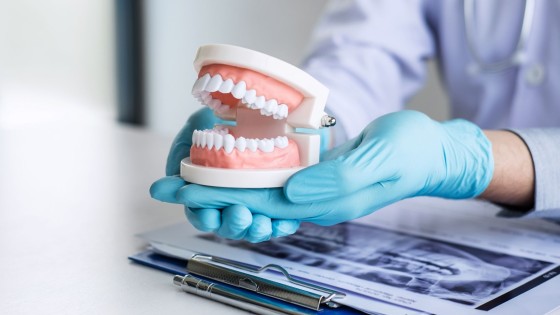Course Update in Oral and Maxillofacial Surgery 2024
Fechas
Registro
The cycle of Oral and Maxillofacial Surgery conferences covers a wide variety of fundamental topics that are within the competence of surgeons specialized in this discipline. It provides an extensive introduction to the spectrum of pathologies commonly found in the facial region. This educational approach will be carried out through face-to-face sessions, ensuring a comprehensive and enriching learning experience.
Objectives:
- Get acquainted with the various current treatments in the field of oral and maxillofacial surgery.
- Acquire a comprehensive introduction to oral and maxillofacial surgery, delving into the knowledge of the various pathologies that affect the facial region through lectures given by distinguished professors from our faculty.
- Encourage interest in oral and maxillofacial surgery among undergraduate students in Ecuador and Latin America, creating a conducive environment for learning and exploring this specialty.
Target Audience:
General dentists, Oral Surgeons, dentistry students who wish to have knowledge about Oral and Maxillofacial Surgery to have the theoretical and scientific bases and to be able to pass entrance exams to postgraduate programs with a high level of preparation.
*Requirements: Be enrolled in the dentistry career or already have the title of general dentist.
Graduate Profile:
Professionals who complete the program will be able to:
• Present themselves with theoretical and scientific knowledge to apply for a maxillofacial surgery postgraduate program
• Know the areas that involve therapeutic and surgical management of Maxillofacial Surgeons
Learning Outcomes:
| # | Learning Outcomes | Level |
|---|---|---|
|
1 |
Refresh knowledge of subjects reviewed in the dentistry career such as anatomy, physiology, embryology, pharmacology, and get to know and add knowledge of the different areas handled by maxillofacial surgery. |
Medium |
|
2 |
Reflect based on theoretical knowledge to be able to diagnose specifically in each case, pathology, or need of the patient in maxillofacial surgery |
High |
|
3 |
Identify based on scientific and theoretical knowledge the needs of maxillofacial surgery patients. |
Medium |
|
4 |
Develop theoretical knowledge in maxillofacial surgery in order to apply for a maxillofacial surgery postgraduate program and increase the knowledge learned in the dentistry career |
High |
Mode of Study
Start Date: May 20, 2024
End Date: June 21, 2024
Duration: 5 weeks: 121 face-to-face hours
- 96 hours in face-to-face mode at USFQ facilities
- 25 hours of autonomous work activities by the student on the USFQ e-learning platform
Schedule: (Monday, Tuesday, Wednesday, Thursday, Friday)
8:00 AM - 12:00 PM
The teaching methodology of the course is based on the flexible Blended learning model and project-based learning. The professor will conduct real-time lectures to the students, encouraging the student to intervene with their doubts and comments. The more frequent these interventions are, the richer the collective learning will be. The sessions will revolve around particular topics or specific case studies, which will seek to provide the student with a complete understanding of the theory as well as its relationship with the current industry context. In addition to this, all participants will carry out 6 hours of autonomous learning on the USFQ E-Learning platform, where they will find materials provided by the professor. They will watch videos, read short articles, participate in forums, or have brief discussions on the various topics covered in the course.
Evaluation Mechanism: One exam for each topic taught, minimum grade of 7 out of 10. Attendance and punctuality. Participation through interaction with questions in class. Individual assignments will be assigned, reading and analysis of articles on the topics taught, with presentation of discussions led by the professor in charge of the session. Presentation of the master class by the professor for 50 minutes and at the end 10 minutes of questions and answers, as well as group discussion of the topic taught, moderated by the professor in charge of the session. Every student must be online or present 5 minutes before the start of the session. The professor may ask questions randomly to the participants during the session time.
On-site - 121 hours of face-to-face classes at USFQ facilities
121 academic hours spread over 5 weeks - Intensive
Face-to-face sessions: Monday, Tuesday, Wednesday, Thursday, and Friday:
8:00 AM - 12:00 PM
General Public Rate: $550
Early Payment Rate: $500
USFQ Community Rate: $490
Content
EVALUATION OF THE SURGICAL PATIENT/BASIC SCIENCES
Learning Objective: To understand how to manage the healthy patient, medically compromised patient, and determine the surgical risk of each patient. Management of medical complications in the dental office.
Module Content:
- Surgical Principles
- Cardiac Diseases
- Respiratory Diseases
- Renal Insufficiency
- Hematologic Diseases
- Autoimmune Diseases
- Endocrinologic Diseases
- Pre-surgical Management
- Management of Medical Complications in the Dental Office
- Anatomy of the Facial Skeleton
- Facial and Dental Embryology
PHARMACOLOGY APPLIED TO DENTISTRY AND ORAL AND MAXILLOFACIAL SURGERY
Learning Objective: To enhance knowledge of pharmacology applied to general dentistry as well as surgery in the maxillofacial region.
Module Content:
- Pharmacology of Local Anesthetics
- Antibiotics in Dentistry/Odontogenic Infections
- Analgesics and Anti-inflammatories
- Additional Medications in the Dental Field
DENTOALVEOLAR SURGERY
Learning Objective: To provide an introduction and enhance knowledge in dentoalveolar surgery.
Module Content:
- Simple and Complex Extractions
- Extraction of Impacted Teeth
- Management of Third Molars
- Apicoectomy or Periapical Surgery
- Complications in Oral Surgery
PATHOLOGY OF THE MAXILLOFACIAL REGION
Learning Objective: To provide an introduction and enhance knowledge in oral and maxillofacial pathology.
Module Content:
- Odontogenic and Non-odontogenic Cysts
- Odontogenic Tumors
- Maxillofacial Osteomyelitis
- Maxillo-mandibular Osteoradionecrosis
- Medication-related Osteonecrosis of the Jaws
- Miscellaneous Pathology of the Maxillofacial Region
MAXILLOMANDIBULAR BONE RECONSTRUCTION
Learning Objective: To provide an introduction and enhance knowledge in maxillofacial reconstruction and dental implants.
Module Content:
- Reconstruction of Atrophic Alveolar Process for Dental Implants
- Maxillary Sinus Elevation for Dental Implant Placement
- Basic Principles in Oral Implantology
- Reconstruction of Large Maxillo-mandibular Defects
VARIOUS TOPICS IN MAXILLOFACIAL SURGERY
Learning Objective: To provide an introduction and enhance knowledge in maxillofacial surgery.
Module Content:
- Orthognathic Surgery and Management of Facial Deformities
- General Aspects of Facial Trauma
- Comprehensive Management of Patients with Cleft Lip and Palate
Schedule
| Week | Month | Day | Duration (h) | Time | Module | Topics | |
| 1 | May | 20 | Monday | 4 | 08:00 AM - 12:00 PM | Module 1 | Surgical Principles Cardiac Diseases Respiratory Diseases |
| 21 | Tuesday | 4 | 08:00 AM - 12:00 PM | Renal Insufficiency Hematologic Diseases Autoimmune Diseases |
|||
| 22 | Wednesday | 4 | 08:00 AM - 12:00 PM | Endocrinologic Diseases Pre-surgical Management Management of Medical Complications in the Dental Office Anatomy of the Facial Skeleton Facial and Dental Embryology |
|||
| 23 | Thursday | 4 | 08:00 AM - 12:00 PM | Module 2 | Pharmacology of Local Anesthetics | ||
| 2 | 27 | Monday | 4 | 08:00 AM - 12:00 PM | Antibiotics in Dentistry/Odontogenic Infections | ||
| 28 | Tuesday | 4 | 08:00 AM - 12:00 PM | Analgesics and Anti-inflammatories | |||
| Additional Medications in the Dental Field | |||||||
| 29 | Wednesday | 4 | 08:00 AM - 12:00 PM | Module 3 | Simple and Complex Extractions. | ||
| 30 | Thursday | 4 | 08:00 AM - 12:00 PM | Extraction of Impacted Teeth. | |||
| 31 | Friday | 4 | 08:00 AM - 12:00 PM | Management of Third Molars. | |||
| Apicoectomy or Periapical Surgery. | |||||||
| Complications in Oral Surgery. | |||||||
| 4 | June | 3 | Monday | 4 | 08:00 AM - 12:00 PM | ||
| 4 | Tuesday | 4 | 08:00 AM - 12:00 PM | ||||
| 5 | Wednesday | 4 | 08:00 AM - 12:00 PM | Module 4 | Odontogenic and Non-odontogenic Cysts | ||
| Odontogenic Tumors Maxillofacial Osteomyelitis |
|||||||
| 6 | Thursday | 4 | 08:00 AM - 12:00 PM | Maxillo-mandibular Osteoradionecrosis | |||
| 7 | Friday | 4 | 08:00 AM - 12:00 PM | Medication-related Osteonecrosis of the Jaws | |||
| 5 | 10 | Monday | 4 | 08:00 AM - 12:00 PM | Miscellaneous Pathology of the Maxillofacial Region | ||
| 11 | Tuesday | 4 | 08:00 AM - 12:00 PM | ||||
| 12 | Wednesday | 4 | 08:00 AM - 12:00 PM | Module 5 | Reconstruction of Atrophic Alveolar Process for Dental Implants | ||
| 13 | Thursday | 4 | 08:00 AM - 12:00 PM | ||||
| 14 | Friday | 4 | 08:00 AM - 12:00 PM | Maxillary Sinus Elevation for Dental Implant Placement | |||
| 6 | 17 | Monday | 4 | 08:00 AM - 12:00 PM | Basic Principles in Oral Implantology | ||
| 18 | Tuesday | 4 | 08:00 AM - 12:00 PM | Reconstruction of Large Maxillo-mandibular Defects | |||
| 19 | Wednesday | 4 | 08:00 AM - 12:00 PM | Module 6 | Orthognathic Surgery and Management of Facial Deformities | ||
| 20 | Thursday | 4 | 08:00 AM - 12:00 PM | General Aspects of Facial Trauma | |||
| 21 | Friday | 4 | 08:00 AM - 12:00 PM | Comprehensive Management of Patients with Cleft Lip and Palate | |||
| TOTAL | 96 | ||||||
Certificate Issuance Parameters
Approval Certificate
At the end of the course, participants must achieve a minimum grade of 80/100 to obtain their approval diploma and fulfill a minimum of 80% attendance of the total program.
If the program is successfully completed, Universidad San Francisco de Quito will issue a certificate of approval for the number of academic hours completed.
Participants who pass the program by meeting the minimum requirements will also receive a digital credential on the Credly platform, allowing them to showcase their academic achievements to their community in a more visual and straightforward manner.
| Category | Description | Total |
|---|---|---|
| Attendance and Punctuality | Attend in-person and online sessions 5 minutes before the start of each session. Actively participate during the sessions. | 15% |
| Exams | Evaluation of each topic covered. Pass with a minimum of 7/10. | 25% |
| Assignments | Individual assignments will be given, including reading and analysis of articles on the topics covered. | 20% |
| COMF Final Exam | Final exam to assess knowledge. | 25% |
| Skills and Abilities | The participant's skills and abilities will be evaluated, especially during in-person sessions. | 15% |
Instructors
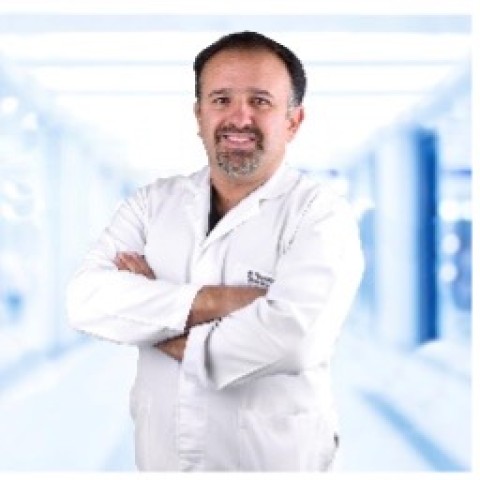
Fernando José Sandoval Portilla
Specialist in Oral and Maxillofacial Surgery. Faculty of Dentistry, UNAM, Mexico. Coordinator of the Postgraduate Program in Oral and Maxillofacial Surgery at USFQ. School of Dentistry, Universidad San Francisco de Quito. Accredited member of the Mexican Council of Oral and Maxillofacial Surgery. Sub-Chief of the Maxillofacial Surgery Service at Metropolitan Hospital.
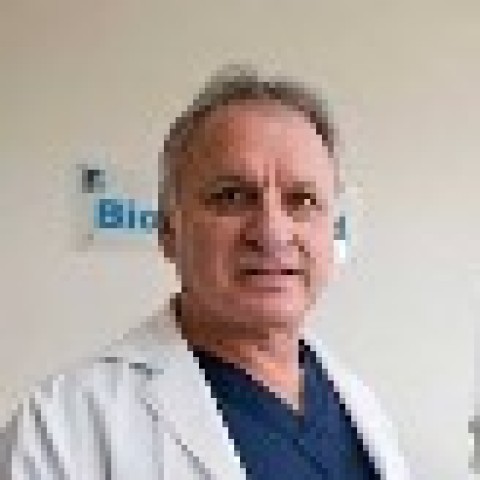
Fernando Sandoval
Specialist in Oral and Maxillofacial Surgery. Faculty of Dentistry, UNAM, Mexico. Coordinator of the Postgraduate Program in Oral and Maxillofacial Surgery at USFQ. School of Dentistry, Universidad San Francisco de Quito. Accredited member of the Mexican Council of Oral and Maxillofacial Surgery. Sub-Chief of the Maxillofacial Surgery Service at Metropolitan Hospital.
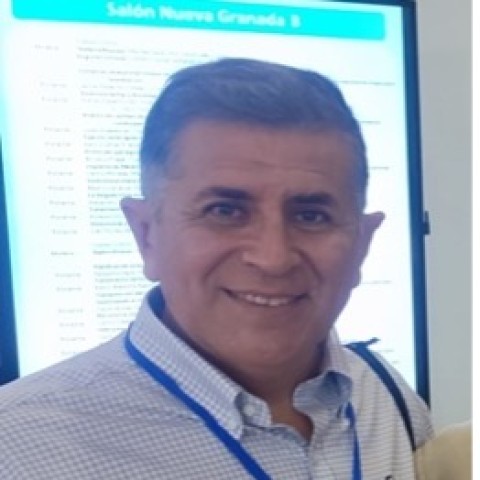
Patricio Unda Jaramillo
Specialist in Oral and Maxillofacial Surgery, Adolfo López Mateos Hospital, ISSSTE, Mexico. Maxillofacial Surgeon at the Specialized Hospital of the Armed Forces N1 in Quito. Professor at the School of Dentistry, USFQ.
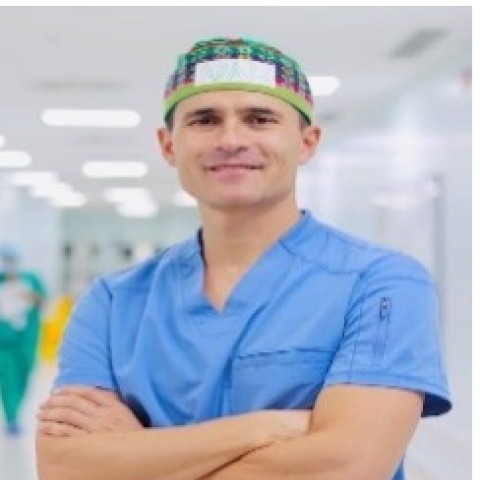
Valeri Paredes Kirdiapkina
Specialist in Oral and Maxillofacial Surgery. Faculty of Dentistry, UNAM, Mexico. Professor at the School of Dentistry, USFQ. Member of the AOCMF Latin America. Surgeon at the Smile Ecuador Foundation.
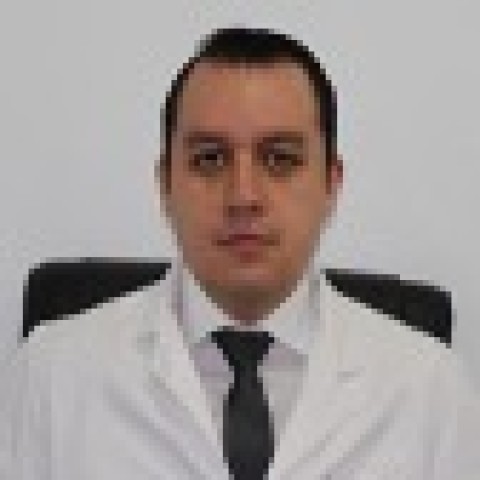
René Díaz Mora
Specialist in Oral and Maxillofacial Surgery. Faculty of Dentistry, UNAM, Mexico. Professor in the Oral and Maxillofacial Surgery specialty at USFQ. Teaching tutor at Baca Ortiz Pediatric Hospital for the Oral and Maxillofacial Surgery postgraduate program at USFQ.
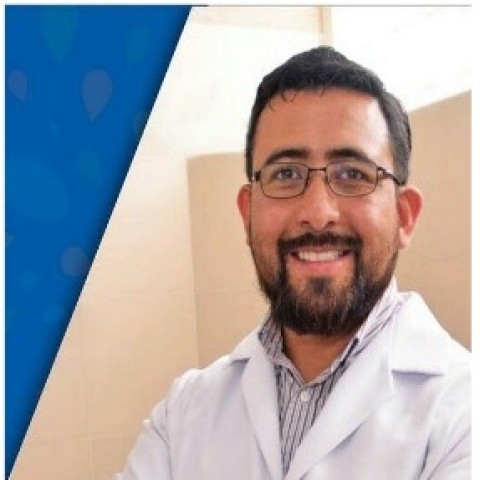
Fernando Morales
Specialist in Oral and Maxillofacial Surgery from the School of Dentistry, USFQ. Professor in the Oral and Maxillofacial Surgery specialty at USFQ. Teaching tutor at Carlos Andrade Marín Hospital (HCAM) for the Oral and Maxillofacial Surgery postgraduate program at USFQ.
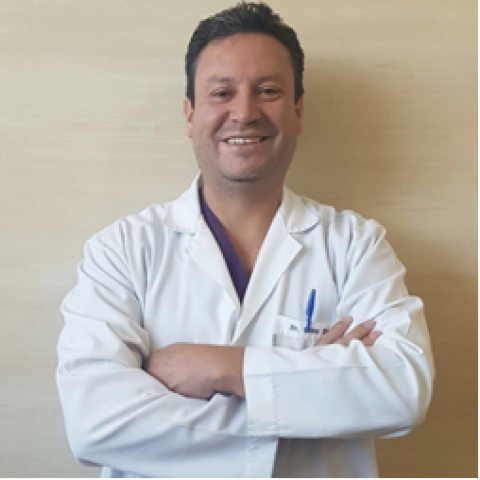
Fabián Martinez
Specialist in Oral and Maxillofacial Surgery from the School of Dentistry, USFQ. Professor in the Oral and Maxillofacial Surgery specialty at USFQ. Teaching tutor at Carlos Andrade Marín Hospital (HCAM) for the Oral and Maxillofacial Surgery postgraduate program at USFQ.
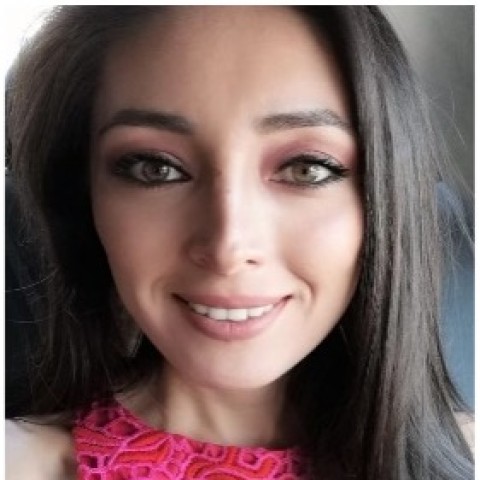
Ana Karen Rodríguez Reinoso
Specialist in Oral and Maxillofacial Surgery. Professor at the School of Dentistry, USFQ. Maxillofacial Surgeon at Metropolitan Hospital.
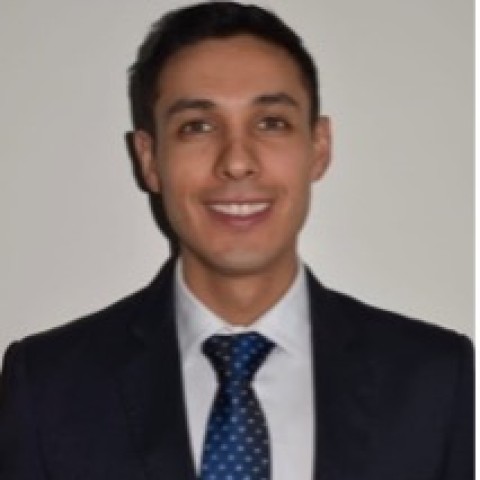
Marco Cedillo Bailón
Specialist in Oral and Maxillofacial Surgery. Professor at the School of Dentistry, USFQ.
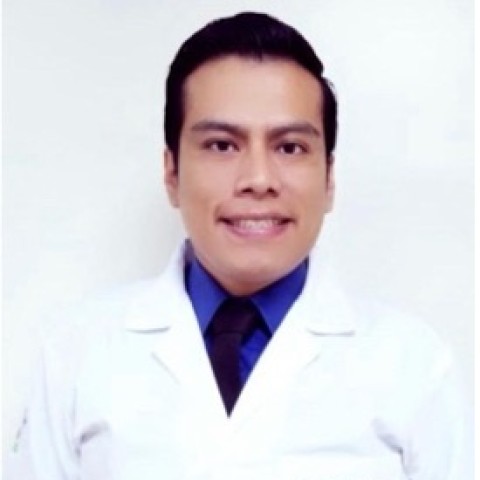
Christopher Naranjo Cajamarca
Specialist in Oral and Maxillofacial Surgery. General Hospital IESS Riobamba, SOLCA Hospital Quito. Professor at the School of Dentistry, USFQ.
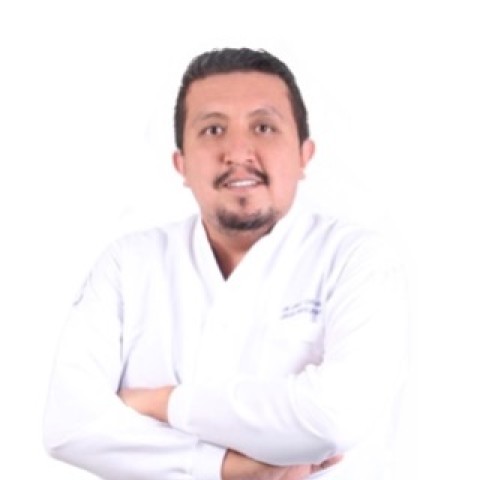
David Carvajal
Specialist in Oral and Maxillofacial Surgery. Professor at the School of Dentistry, USFQ. Maxillofacial Surgeon at North Hospital in Quito.
Participant Registration
Tarifa Público General: $550
Tarifa Pronto Pago: $500
Tarifa Comunidad USFQ: $490
La cancelación del valor del programa se podrá realizar a través de las siguientes formas:
PASO 1: Realizar el pago
Transferencia o pago en ventanilla
Datos de la cuenta:
A nombre de Universidad San Francisco de Quito
Banco Bolivariano
Cuenta corriente Nro. 5075003350
(RUC: 1791836154001)A nombre de Universidad San Francisco de Quito
Banco Pichincha
Cuenta corriente Nro. 3407330004
(RUC: 1791836154001)
Tarjeta de Crédito
Dar clic en el siguiente PAGUE AQUÍ y complete la información solicitada por el formulario. Al finalizar quedará registrado automáticamente en el sistema.
Con tarjetas de crédito Banco de Pichincha o Banco de Guayaquil podrá acceder al siguiente financiamiento: 3 y 6 meses sin intereses, 9 y 12 meses con intereses.
PASO 2: Confirmar tu pago
Si realizó el pago mediante Transferencia o Depósito, por favor enviar una copia del comprobante de depósito (escaneado) y sus datos personales (nombres completos, cédula, teléfono y dirección) al siguiente email: rordonez@usfq.edu.ec
* En caso de requerir factura con datos distintos al del participante, detallar en el correo los siguientes datos (razón social, RUC/cédula, teléfono, dirección y correo electrónico).
Si realizó el pago con Tarjeta de Crédito no es necesario confirmar su pago, el sistema registrará sus datos automáticamente.
PASO 3: Confirmación de registro
Recibirá un mail de confirmación de registro, con la información pertinente al curso.
* La coordinación del programa se reserva el derecho de suspender o reprogramar la realización de la actividad si no cuenta con el mínimo de alumnos requeridos o por motivos de fuerza mayor. En tal caso se devuelve a los alumnos matriculados la totalidad del dinero a la brevedad posible.

